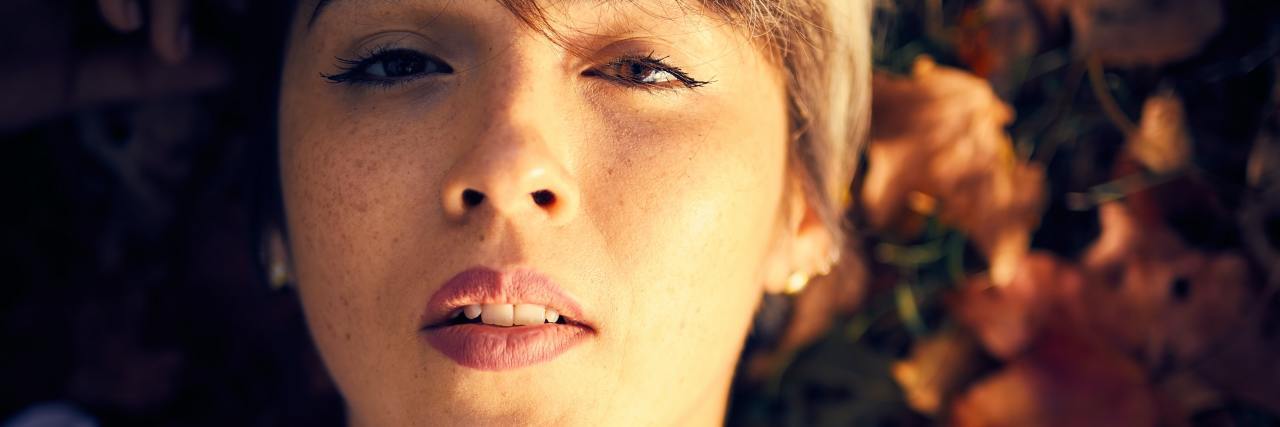“You’re a rare bird,” they say. “A few thousand people in the world have what you have.”
That’s all they tell me, the best clinic in the world. There’s no way to stop the symptoms and ease the pain, because nobody yet has cared enough to look for a cure. “Orphan diseases,” it’s explained to me, are conditions that affect less than 200,000 people worldwide. I have more than I can count on my fingers, but. There. Are. No. Cures.
It’s what they don’t tell you about unique, chronic illness that you have to learn the hardest way.
No challenges on YouTube for money. Just anonymity. What people don’t know, they don’t acknowledge. You try to explain it, and your friends just shake their head in confusion.
“But you look fine,” they say. I thank them politely, knowing they mean well. “You want to go out?”
“I can’t. I’m sick,” the same conversation starts.
“Again?” comes the answer, and the conversation stops. Soon, they stop calling altogether.
You’re alone in your diagnoses — and your journey. The emptiness of it might be as painful as the symptoms that rip you apart. I spent 18 months confined to my bed, staring at four walls that closed in on me a little more each day. My only outlet was my Kindle and my dogs, and I discovered that I could still write from bed. It may take me a week to write what would have taken me hours, but I wrote anyway. I found release in books. I found release in language and imagery so powerful you could smell and feel and be the characters, instead of a broken body in a bed.
So I wrote my favorite authors, and thanked them for bringing me peace.
I never cried. Tears just make people uncomfortable.
Pain isn’t just sensation. If only it were isolated so. Pain and illness are insidious in their pervasiveness. You hurt, you’re sick; you can’t leave the house. Anxiety develops. The claws of depression come out and grip a chunk of your soul.
Hours pass; it could be minutes. Time has no place in the world of pain. Instead you float alongside the passing tide of time, feeling every microsecond in the small fibers of your body, where pain should have no harbor.
Most of the time these days, I look well on the outside, if a little fragile or pale. Almost like a Normal Person. It’s a double-edged sword, cutting me deeply both ways.
There is an unspoken stereotype that a disabled person must have a visible disability in order to be validated. People have an expectation of disability in order to satisfy their natural curiosity, as well as to verify that disabled person is “deserving” of the accommodation they may be given.
You can’t tell my orthostatic intolerance makes me dizzy when I walk far distances, and I don’t always limp. I am judged for looking well, though believe me, I am grateful I look fine most days. I remember being stared at as I walked with a cane, because I was younger. When I had that cane, though, doors were opened for me, people gave me their seats and I was generally treated kindly, though I was condescended to many times. That cane was their validation that I could be accommodated.
I gave up that cane because I was sick of people looking at my cane first and then at me, sizing me up. I choose to walk more slowly, grab onto things and generally risk a fall because I am sick and tired of it all.
The doctors can’t help; every time their egos get in the way of learning something new. At first, with magic hands and words of hope, they hand you their bottles of pills. When they ran out of pills and hope, they threw their magic hands in the air, and explained they had gone to school for an awfully long time, not only to learn magic, but to learn how to create soft words and quiet ways of speaking.
In soft tones and apologetic eyes, they say:
“You’re a zebra.”
“A zebra? I thought I was a rare bird,” you quip, knowing a zebra comes from an old medical saying that rare is rare for a reason, so if you “hear hoofbeats, think horses, not zebras.”
Either way, I hear the same thing.
“Too rare.”
“We can’t help you.”
I’m alone.
Can you relate to Elle’s story? Let her know in the comments below.
Photo by Darius Bashar on Unsplash

